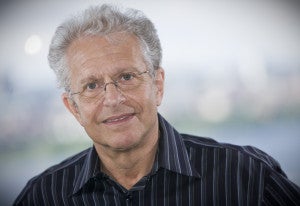Harvard Law School Professor Laurence Tribe today submitted a friend of the court brief urging the Massachusetts Supreme Judicial Court to reject calls for a civil union law. The brief argues that the court’s language in its recent decision in Goodridge v. Department of Public Health was unambiguous in its conclusion that state law could no longer prohibit gay marriages. Additionally, the brief contends that an advisory opinion allowing that prohibition to remain in effect but allowing “civil unions” instead would harm the court’s credibility and hurt its ability to preserve the rule of law. Ninety of the nation’s most distinguished constitutional scholars and legal historians signed the brief.

Reached at his home in Cambridge, Professor Tribe, author of the leading modern treatise on the U.S. Constitution and principal author of the amicus brief, said, “I hope and trust that the SJC will sit up and listen when it sees that ninety of the most widely respected constitutional experts and historians in the nation, spanning the ideological spectrum, have joined in a detailed explanation of why any equivocation by the Justices of the SJC in response to the state senate’s request for an advisory opinion about civil union legislation not only would hurt the gay men and lesbians who are counting on the SJC to stick by what it said in November about same-sex marriage but also would hurt the court itself, by undermining its hard-earned reputation for candor and integrity.”
The brief was filed at the invitation of the court, which has been asked by the Massachusetts state senate to issue an advisory opinion on a potential bill that would bar gay marriage but provide for similar legal protections in a civil union. Massachusetts is one of 10 states that allow the highest court to offer advisory opinions when asked by the legislature or governor.
“At least to the extent that the Senate’s question is understood, or treated, as an implicit invitation to repudiate that recent precedent [in Goodridge] … this would be the rare case in which the Justices’ two constitutional roles [deciding cases and offering advisory opinions] inextricably intertwine in a way that raises serious concerns about the integrity and independence of the adjudicatory and advisory functions of the SJC and its members,” Tribe wrote in the brief.
In addition to Tribe, the brief was co-signed by 18 Harvard Law School Professors including William Alford, Elizabeth Bartholet, Alan M. Dershowitz, Richard Fallon, Gerald Frug, Morton J. Horwitz, David Kennedy, Randall Kennedy, , Martha L. Minow, Frank I. Michelman, Robert H. Mnookin, Charles J. Ogletree Jr, Joseph Singer, Carol S. Steiker, Henry J. Steiner, Paul Weiler, David Westfall, and David B. Wilkins.